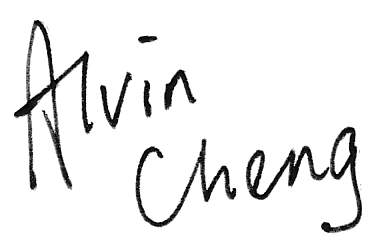Speaking of feedback loops
One thing we aren’t really aware of is the existence of feedback loops, which greatly affect our daily life and future.
Because a feedback loop can’t be easily seen until we connect the dots in various stages of our life. Some events especially traumatic experiences can impact greatly on our ways of doing, even though we think we are fine.
Why feedback loops matter? And how negative feedback loops slowly ruin our life?
Bad events can be sufficient in leading one to prevent mistakes, faults and even risks continuously in the long run at all costs, in spite of foreseeing new opportunities. At least we feel relieved when we avoid possible bad consequences, and this feedback tells us that the strategy (avoidance) is so effective that we should adopt it again.
Thus we will have no reasons to risk ourselves to seek or create new opportunities, and we will never have any relevant positive experiences making us change our current strategy of avoidance, which is already good.
Even though we are unable to acknowledge the cons of preventing risks in the long run, we will still be reluctant to change the strategy because we don’t want to give up the only thing we are having, when a new one is difficult to develop.
So how to create a positive feedback loop?
Creating positive loops requires positive feedbacks for sure, but it’s inevitable that some negative feedbacks will occur. Take running for long distances like marathon as an example. Someone may encourage you by saying something like “you can do it” or “you should feel confident”, and you finally do it but you won’t try again because you remember you were so exhausted and unable to walk for a week.
In the age of productivity, we already push ourselves or others to do something faster and better in a large quantity every time. Even though we gain more and more tools, we feel ashamed if we don’t conform to the ethics of productivity, because we urge to achieve something perfectly immediately, leaving a lot of painful memories (and even suffering from burnout and mental illness) causing us to (try to) want to avoid (thus falling into negative feedback loops again).
The good news is that we can minimise the possible negative feedbacks so that we will overall establish our own positive feedback loop in the long run, by slowly engaging in new activities. Say if you really want to achieve long distance, always start with a very short distance with pace (speed) you feel comfortable, so that running less than a mile as slow as walking is already better than nothing, and don’t take personal when people (especially who never run) are trying to make you feel miserable, because with this little achievement without (much) painful consequence as marathon, as well as some satisfaction you notice during the process, you will naturally want to run longer and faster.
Do little things gradually with your own pace instead of struggling to achieve something too big or perfect shortly is the key to create not only positive feedback loops, but also replacing those negative which can slowly ruin our life.


